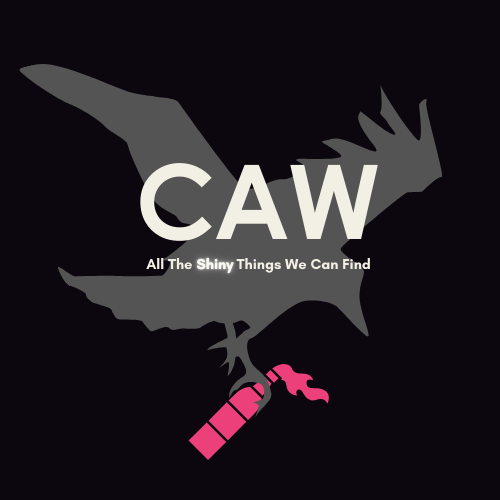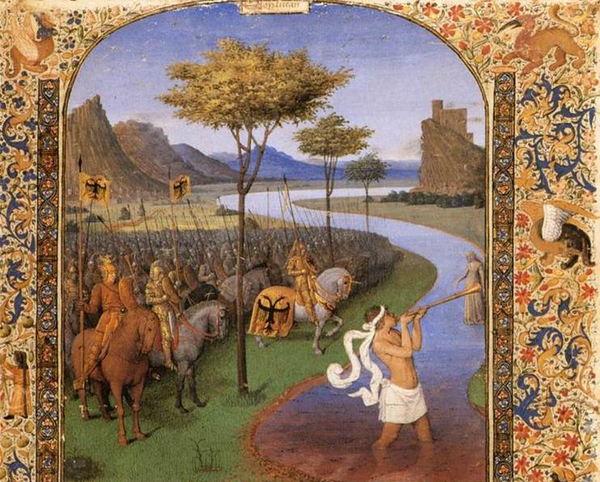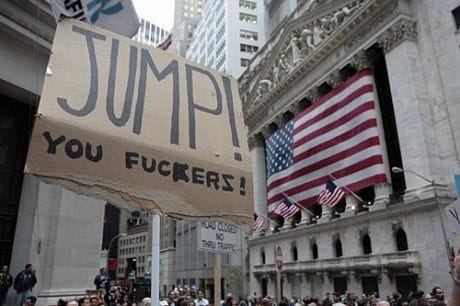How It’s Done Here: The Women’s Revolution, Rojava, Part One
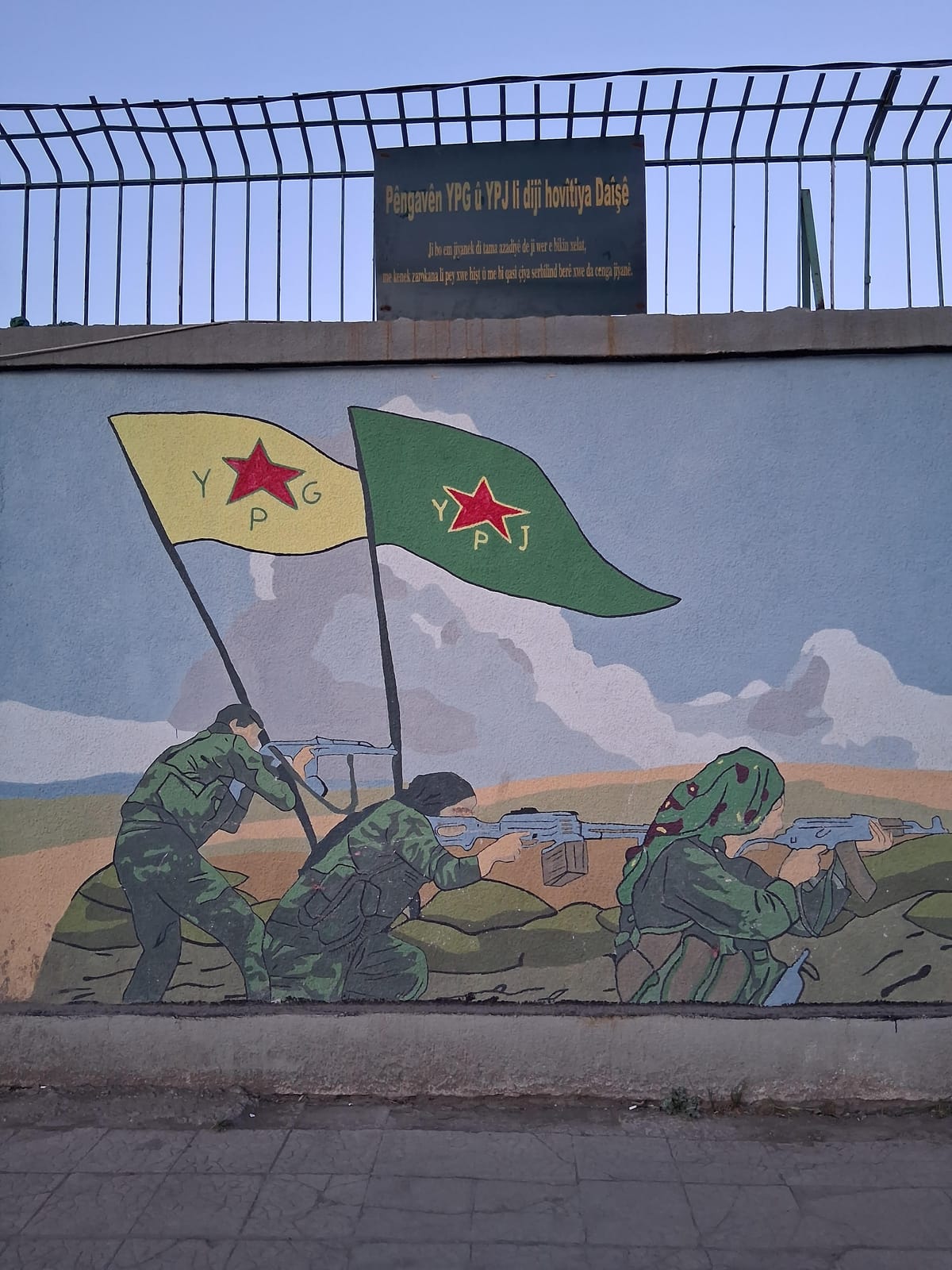
* This is an introduction to a series of essays about the women’s revolution in Rojava. Over the following weeks I will highlight different aspects of, and groups within, the women’s revolution and how western nations could learn a thing or two from them. Stay tuned…
At the Iraq-Syria border crossing in Kurdistan, I carry my passport, press pass, and other required paperwork through the maze of checkpoints. I’m prepared for the border crossing to last anywhere from two to six or more hours, and I’m aware that there are more counters and windows and luggage inspections to visit when I reach the other side, just across the Tigris River. A fixer helps and reassures me through the process, and the whole ordeal is much easier than I had anticipated.
My nervous system is still a little sparked up, though; it’s only been three months since the ousting of Syria’s brutal Bashar al-Assad regime, two weeks since founder Abdullah Öcalan called for the PKK (Kurdistan Workers’ Party) to dissolve, a week since the Syrian security forces massacred roughly 1,000 people in the coastal Alawite community (at least 600 were civilians, according to the Syrian Network for Human Rights, UNICEF, and others), six days since the so-called peace agreement was made between the new government and Kurdish-led Syrian Democratic Forces (SDF), and three days since the U.S. partnered with Iraqi Kurdistan to kill the Chief of Global Operations for ISIS.
There is a lot going on. I’m not 100% confident about being on the other side of the river.
The fixer steers me into another of the many offices I must pass through. Again, I hand over my passport and paperwork granting me permission for entry into Syria. I smile at the young, friendly woman behind the desk. She smiles back and rattles off the questions that I’ve prepared for: Why are you going to Syria? Where is your newspaper’s headquarters? What will your story be about? What cities will you visit? Who are you traveling with? Where will you be staying? What kinds of technology are you bringing? How many phones and cameras do you have?
Finally, after I answer her questions and she finishes copying my identification and writing notes across my press letter, she gets serious for a moment, looks directly into my eyes and asks two questions I am NOT prepared for, “You know you can’t stay, right? Do you understand that you have to come back?”
*
Hours later, the van I’m riding in with a small group of women bounces on the dusty roads through the mountains, stops (semi-stops, to be honest) at multiple, heavily armed checkpoints, passes long lines of oil rigs dripping the black goo as they head for Damascus, and rolls swiftly toward the city of Qamishli, where I’ll stay for a few nights before heading on to Raqqa, Ḥasakah, and elsewhere. We’re exhausted from the long day, but the recently proposed Peace Agreement is on everyone’s mind. The outside world cheered for it triumphantly; peace in the Middle East! Even in Palestine! Finally! (note: Israel began relentlessly bombing Palestine again on March 18, while I was visiting the former headquarters of ISIS, the Black Stadium in Raqqa). Foreign powers accepted the tentative agreement as a critical move toward stifling conflict throughout Kurdistan and the rest of Syria, yet at the time of my visit there had been no word about how the women of Rojava, the autonomous region of northeast Syria, feel about it.
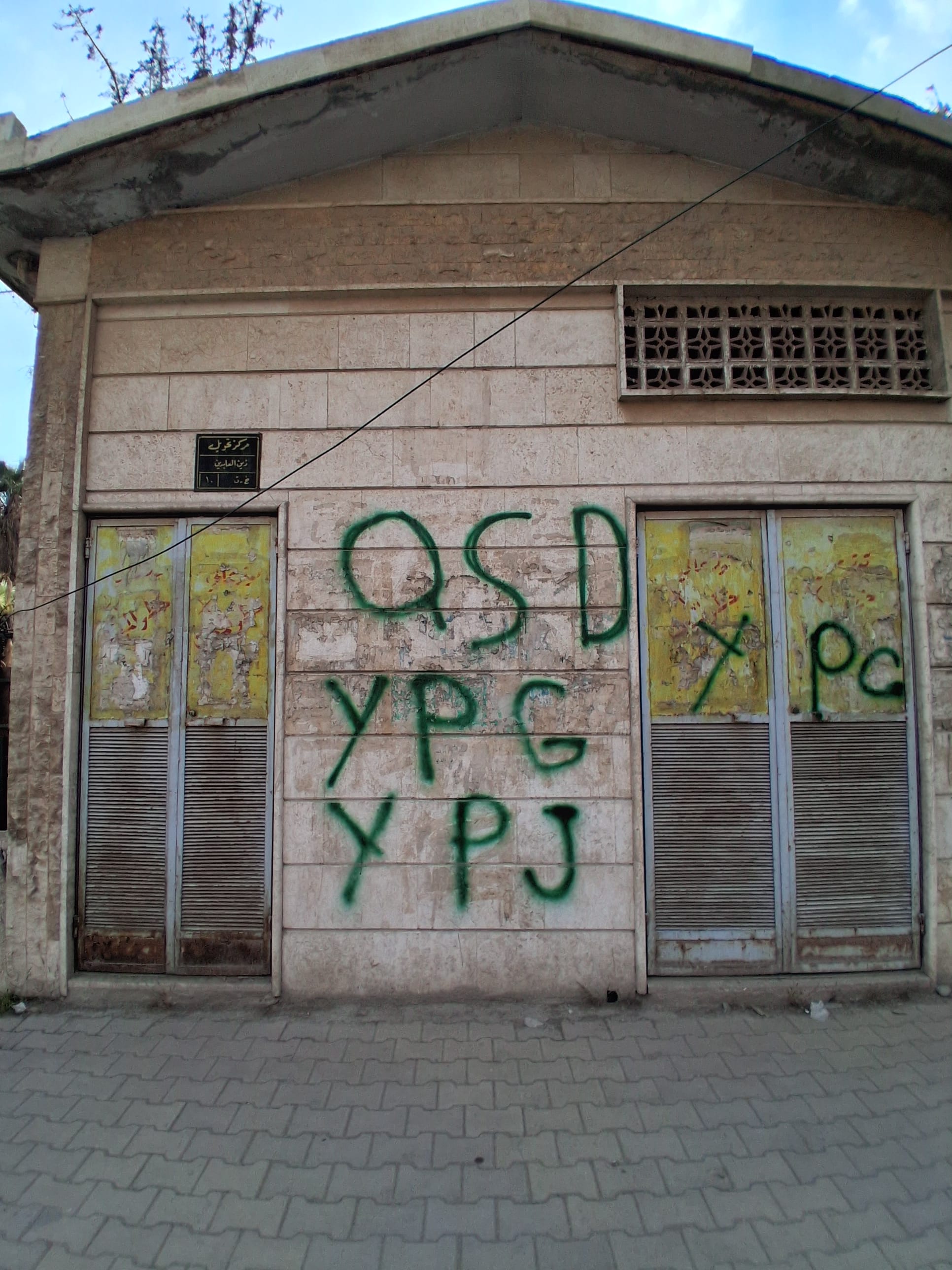
The women's revolution has been evolving and strengthening since 2012, after the Syrian civil war was first sparked in 2011, despite constant oppression from the recently toppled Assad regime, and the occupation and violence from Türkiye. And even though ISIS, or Daesh, lost their stronghold on the region, sleeper cells remain in Raqqa and elsewhere, and many people are still radicalized. The fall of Assad and the new presidency of Ahmed Hussein al-Sharaa (aka Abu Mohammad al-Jolanhas) left many with feelings of uncertainty about the future. While it feels instinctive that the focus now shifts toward Türkiye as the primary aggressor in the region—and rightfully so, as Türkiye continues directing its aggression more precisely toward AANES (Autonomous Administration of North and East Syria)—there remains the question of whether the new government will recognize the rights and autonomy of the Kurdish people living there with actions instead of mere words. President al-Sharaa, after all, commanded the al-Qaeda-linked HTS (Hayat Tahrir al-Sham) who has a history of attacks against the YPG (The People's Defense Units), for example.
Still, Rojava’s autonomous administration appears to be fairly solid, and focuses on grassroots democracy, decentralization, and collective decision making at every level of society, with gender equality being a primary pillar of their goals. Each council and committee of governance—from communes, internally displaced refugee camps, etc.,—is co-led by a man and a woman and all decisions are made collectively and with community input (very binary, I know, but it appears to be working very well for the organizations and various projects I visited).
Aligned with their gender equality goals, is a focus on educating both community leaders and everyday people about the harms of patriarchy on society as a whole; some organizations even provide trainings for men to “de-program” themselves from ingrained patriarchal thinking. One man I met discussed how much his life improved once he began applying what he learned in his home and work life and even joked about learning to cook.
Additionally, there is a strong emphasis on communal and cooperative economies, women’s autonomy, and recovering local ecologies and applying sustainable farming practices after years of environmental devastation from war.
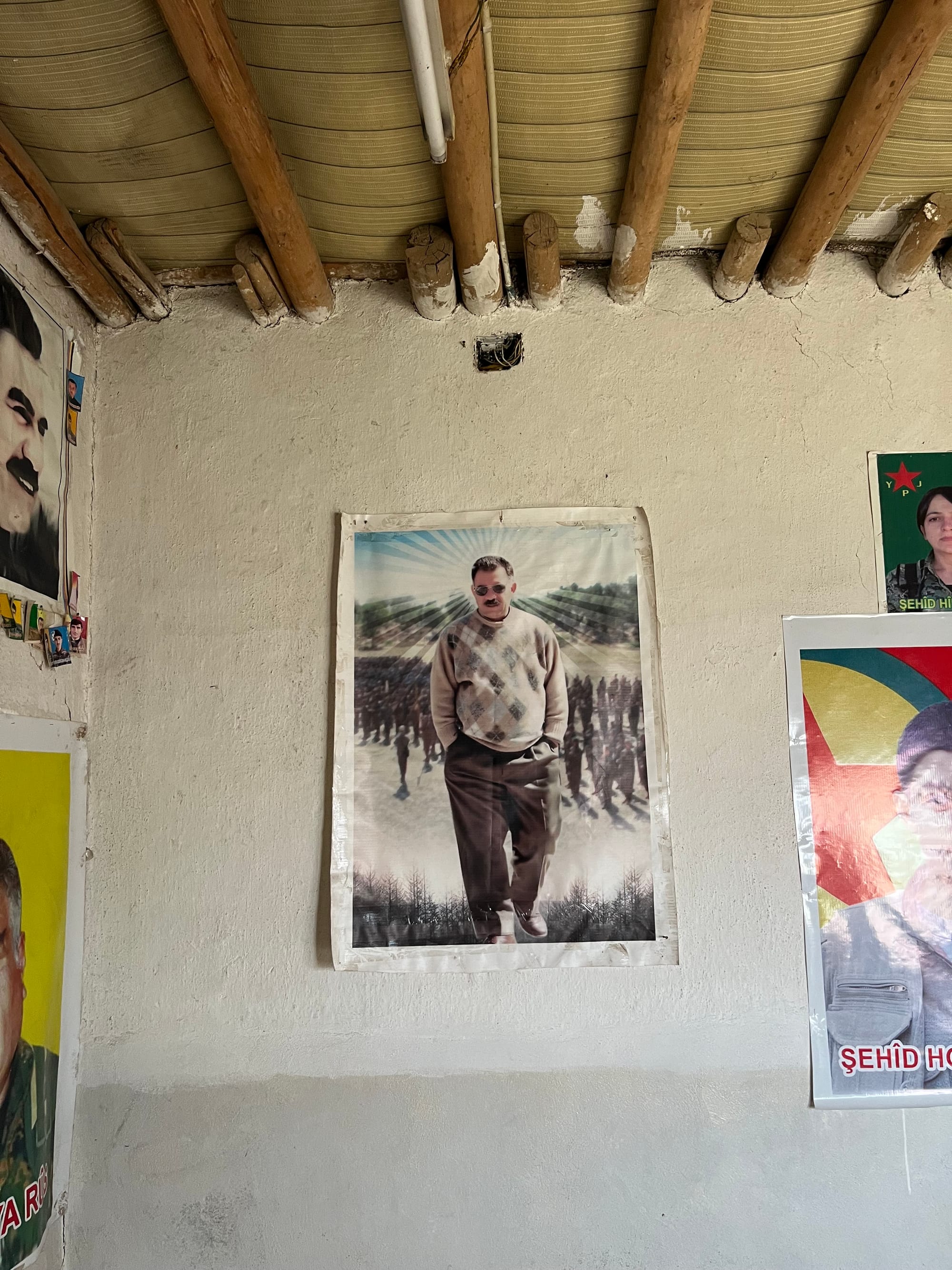
Many of these ideas and much of the steadfast commitment of the movement is fueled through support of PKK founder, Abdullah Öcalan (affectionally called Apo, both a shortened version of Abdullah, and also a term for uncle in Kurdish), who has been imprisoned under Turkish custody since 1999. Öcalan’s ideas are, of course, at least partially inspired by Murray Bookchin’s writings on municipalization and social ecology.
A hot point of discussion during my time in Rojava was Apo’s 8 March (International Women’s Day) letter, in which he wrote:
“…the issue of women’s freedom still retains its importance. The democratic communist process is the new mode of socialization of the pioneer woman. Social truth can only be reached in this way. Social truth will not appear on the political, moral and religious levels unless the culture of rape or sexual assault is eliminated. As Marxism has proven, the success of socialism is not possible unless the culture of male domination that is deeply rooted in modern society is eliminated. The path to socialism passes through women’s freedom. Socialism cannot be achieved unless women’s freedom is achieved. There will be no socialism without democracy.”
He adds:
“The new renaissance is very important, and women should not be viewed biologically, but culturally, socially and historically, and as Simone de Beauvoir says; women are not women by birth but by existence..”
Could he be hinting at trans inclusivity as another aspect of the women’s revolution? The women I traveled with discussed this possibility with enthusiasm; another reason to get behind this revolution, perhaps?
He also reminisces over the ancient matriarchal societies of Babylon and Mesopotamian mythology and the housewifization of women who were once queens, drawing lines between the cultural and ideological (and sometimes literal) imprisonment of women and the collapse of ancient civilizations.
But enough about men discussing women’s freedom…
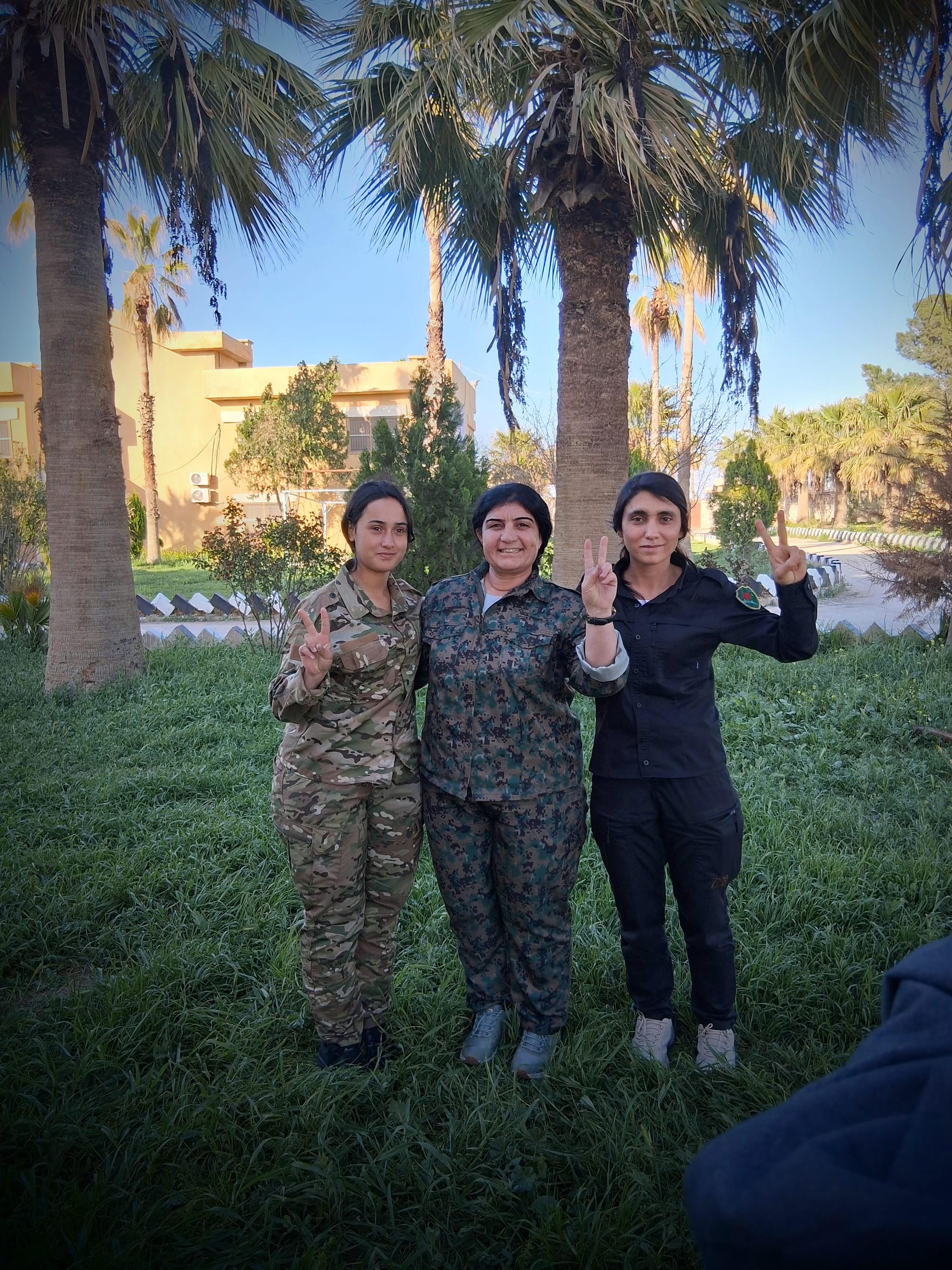
The women I met—in Raqqa, Qamishli, Ḥasakah, Jinwar, the internally displaced Washokani refugee camp, members of the YPJ, injured resistance fighters, herbalists, farmers, survivors of Assad regime, ISIS, and Turkish military torture--they all had similar responses:
The peace agreement really didn’t change things for them—at least not for now. They have worked too hard and lost too many martyrs to the struggle for autonomy to ever give up what they’ve built. And unless women's rights for all women here—Kurds, Arabs, Christians, etc.,—are centered as a critical focus of the agreement, and until the new government in Syria drives the Turkish occupation out of Kurdistan and holds them accountable for their continued killing of the people there, the agreement is just words on paper, and means nothing. The movement will not shift its focus. Their collective resolve was solid – there was no question for any of them.
It’s the kind of consistent, unwavering, even militant everyone-seems-on-the-same-page solidarity that I’ve only dreamed of as an American; half the time Americans can’t get through a single protest without liberals policing each other, arguing about tactics, or centering themselves while they perform revolution on the streets once every few years, let alone joining together in a far-reaching, community centered revolution with nearly everyone on board. I thought a lot—and spoke with my fellow travelers—about how Americans aren’t willing to really take risks to transform society, to really make compromises in order to care for each other in a way that benefits their communities instead of focusing strictly on the wellbeing of their own immediate families.
I admittedly had moments of entertaining a variety of elaborate fantasies of leaving my loved ones behind to join the revolution, imagining myself fighting alongside the much younger and stronger women in the YPJ, de-radicalizing former ISIS brides, or working as an herbalist in one of the region’s women’s clinics, sharing tea with neighbors, spinning tales of revolution into the night (and speaking fluent Kurmanji, of course). And as a witchy anarchist from California, I must say Öcalan’s mentions of Mesopotamian ancestors and their way of matriarchal life also holds a kernel of romantic ideation in my daydreams (I mean, I’m down to worship Ishtar any day). I could understand precisely why the woman at the border crossing made it clear I could not stay. What the women of Rojava continue to build is without question worth fighting for. It isn’t 100% without flaw, and at moments it felt almost cultish in that way in which new movements need to be in order to keep a clear focus on the task at hand. But they have built a new, promising society against the odds, under the most extremely challenging circumstances, with threats coming at them from all sides. I wonder what it will take for people in the west to do the same.
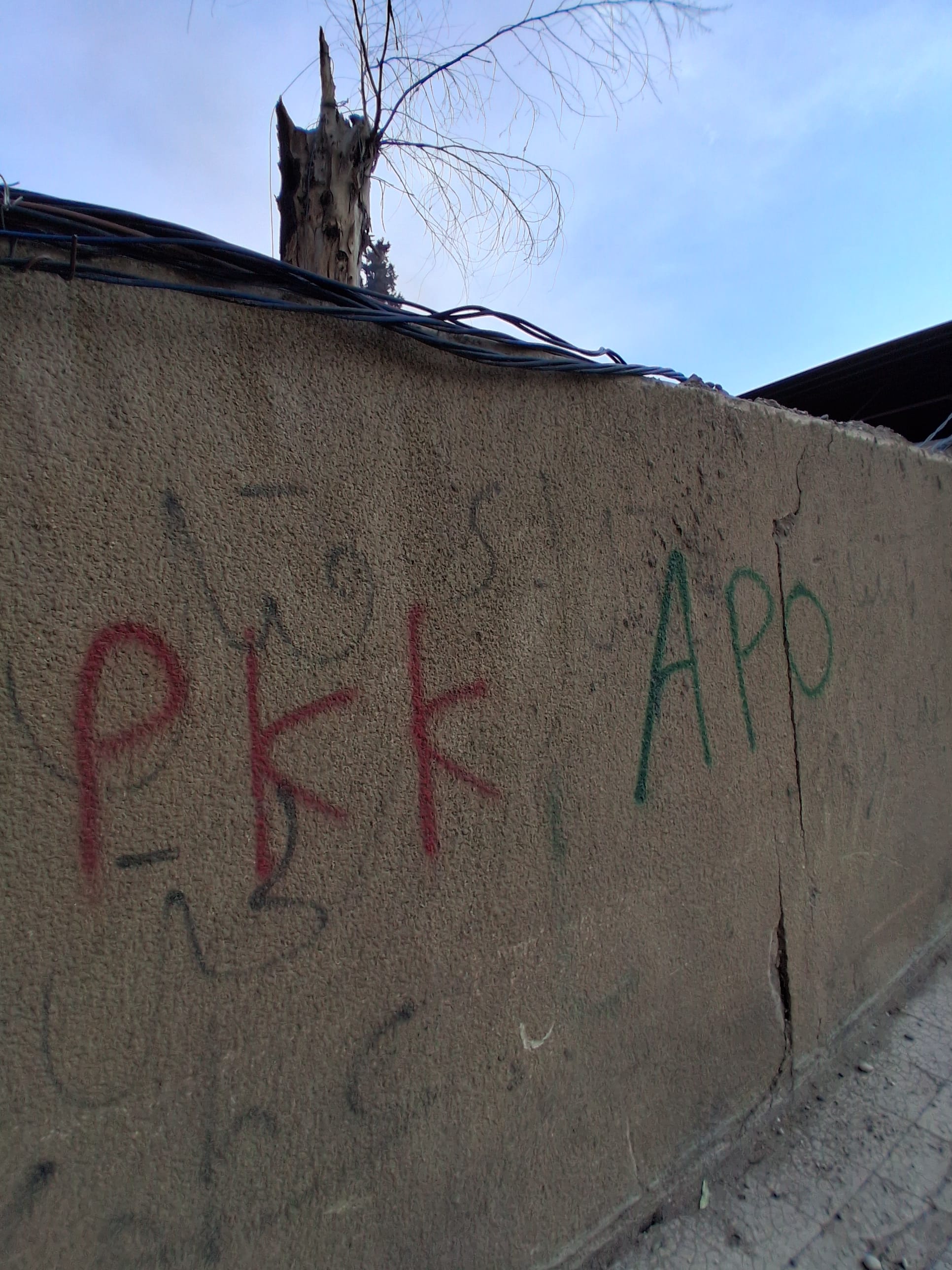
Glossary of terms/key players:
AANES (aka DAANES): The Democratic Autonomous Administration of North and East Syria, also known as Rojava, is a de facto autonomous region in northeastern Syria.
HTS: Hayat Tahrir al-Sham is an armed group designated as a terrorist organization by the Security Council
NES: North and East Syria region
PKK: The Kurdistan Workers' Party, a militant Kurdish nationalist organization founded by Abdullah Öcalan in the late 1970s.
PYD: The Democratic Union Party is a Kurdish left-wing political party
YPG: The People's Defense Units (aka People's Protection Units) is a libertarian socialist US-backed Kurdish militant group
YPJ: Women's Defense Units, an all-female militia involved in the Syrian civil war.
SDC: The Syrian Democratic Council, the political wing of the Syrian Democratic Forces in the Autonomous Administration of North and East Syria (AANES
SDF (aka QSD): Syrian Democratic Forces
SNA: The Syrian National Army (aka Turkish-backed Free Syrian Army (TFSA)
